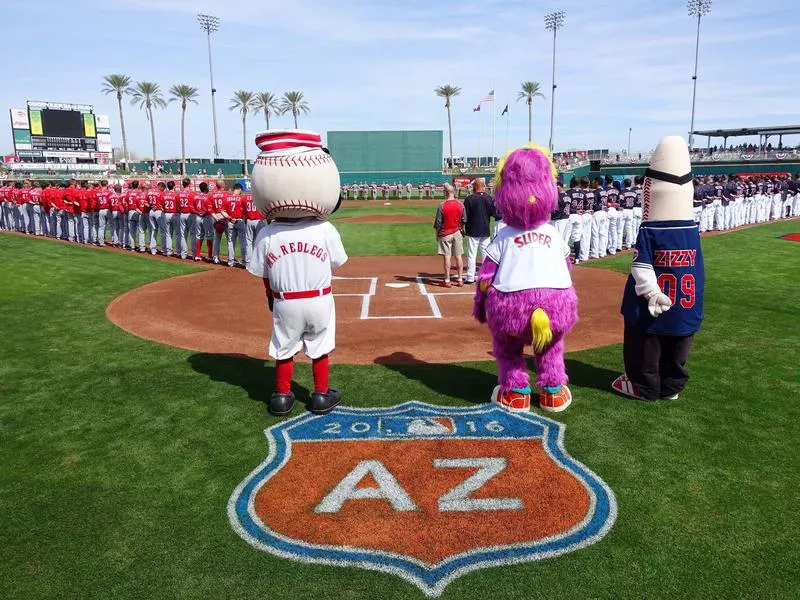
Cincinnati Reds mascot Mr. Redlegs, left, Cleveland Indians mascot Slider, and Goodyear Ballpark mascot Zizzy pause along with players from the Reds and the Indians for the national anthem prior to a Cactus League baseball game on March 1, 2016, in Goodyear, Ariz. Ross D. Franklin / AP Photo
Before the beginning of the regular season, baseball teams go through a month of spring training. There are 15 teams that play in western cities in the United States, and those teams all go to facilities in Arizona for spring training.
They all play practice games against each other for the month in what is nicknamed the Cactus League.
Major League Baseball’s Cactus League participants include the Arizona Diamondbacks, Chicago Cubs, Chicago White Sox, Cincinnati Reds, Cleveland Indians, Colorado Rockies, Kansas City Royals, Los Angeles Dodgers, Milwaukee Brewers, Oakland A’s, San Diego Padres, San Francisco Giants, Seattle Mariners and the Texas Rangers.